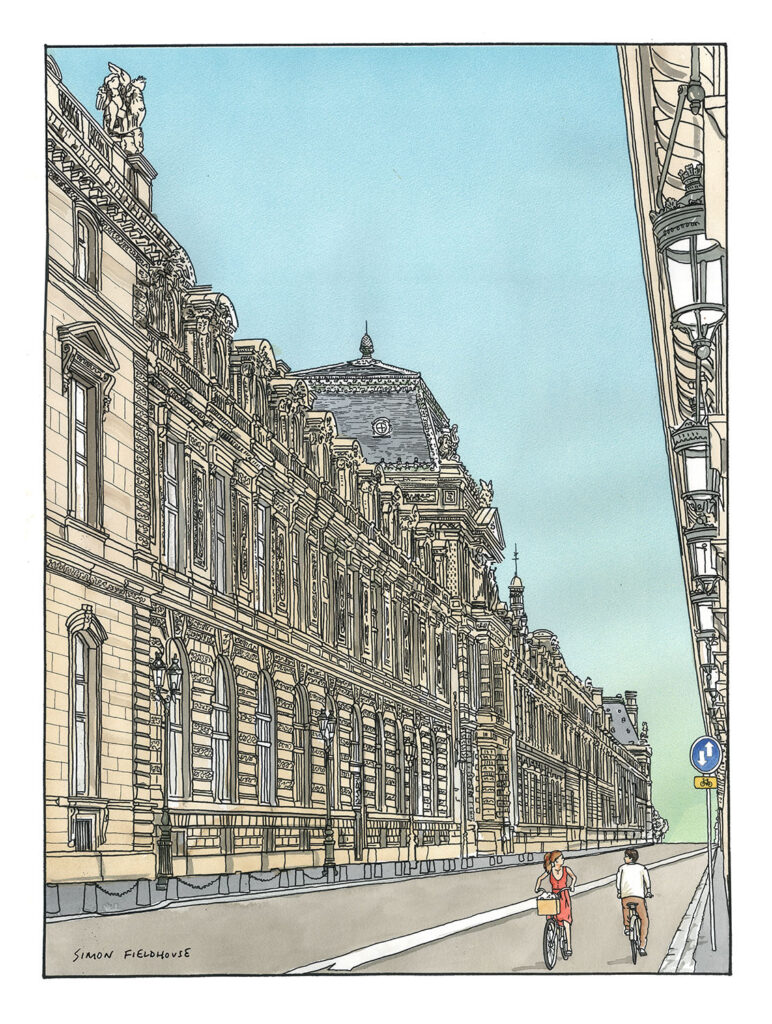
Rue de Rivoli - Paris
Avenue de Rivoli, situated in the heart of Paris, holds immense historical and cultural significance, making it one of the most iconic streets in the city. This grand boulevard stretches for over 3 kilometers, extending from the Place de la Concorde to the Place de la Bastille. Its name pays homage to the Battle of Rivoli in 1797, a pivotal moment in Napoleon Bonaparte's rise to power, marking the historical foundation of the avenue.
Historically, Avenue de Rivoli witnessed the transformation of Paris from an ancient medieval city to a modern metropolis during the 19th century. Commissioned by Napoleon Bonaparte himself, the avenue was designed to emulate the grandeur of European capitals like Vienna and Berlin. Its uniform architecture showcases a blend of Neo-classical and Haussmannian styles, characterized by elegant façades, ornate balconies, and arcades. These architectural elements reflect the grand urban planning projects of Baron Georges-Eugène Haussmann, who remodeled Paris under Napoleon III's reign. Avenue de Rivoli played a pivotal role in this transformation, connecting important landmarks such as the Louvre Museum and the Tuileries Gardens.
Culturally, Avenue de Rivoli is a testament to Paris's artistic and intellectual heritage. The Louvre, one of the world's most renowned museums, dominates the western end of the avenue. Housing countless masterpieces, it attracts millions of art enthusiasts from around the globe. Additionally, the Comédie-Française, a historic theater, and the Hôtel de Ville (City Hall) contribute to the cultural richness of the avenue.
Avenue de Rivoli has also been a hub for commerce and luxury. It is home to several upscale boutiques, making it a prime destination for high-end shopping. The Ritz Paris, a legendary luxury hotel, is located nearby, and it has hosted numerous famous figures throughout history, including Ernest Hemingway and Coco Chanel.
Avenue de Rivoli encapsulates the historical and cultural essence of Paris. Its architectural splendor, historical significance, and cultural prominence make it a symbol of the city's enduring charm and elegance. As visitors stroll along this iconic boulevard, they are not only taking in the beauty of the architecture but also walking through the pages of Paris's rich history and culture. Avenue de Rivoli stands as a living testament to the enduring allure of the City of Light.